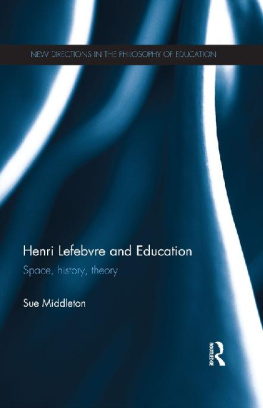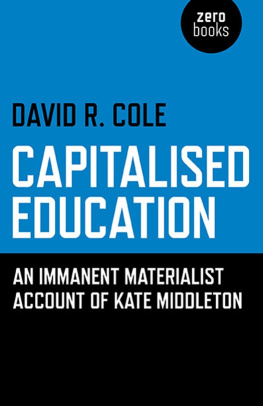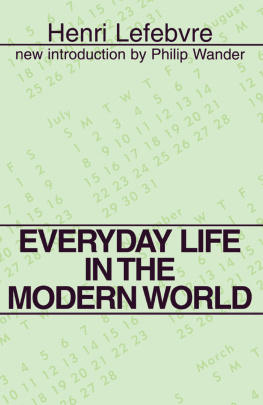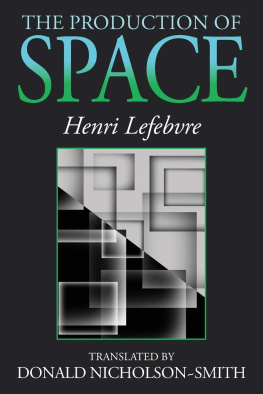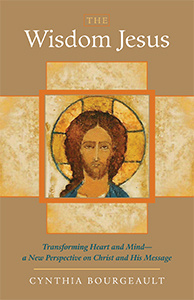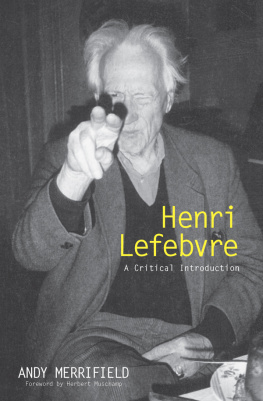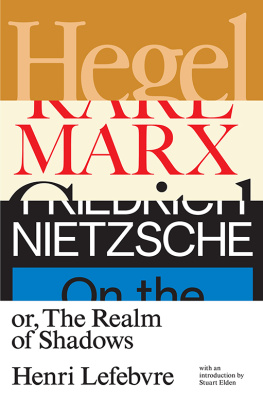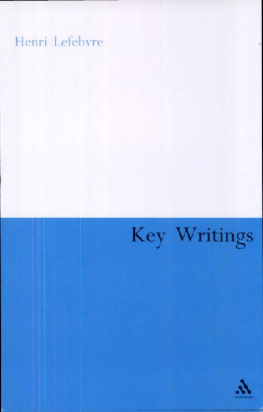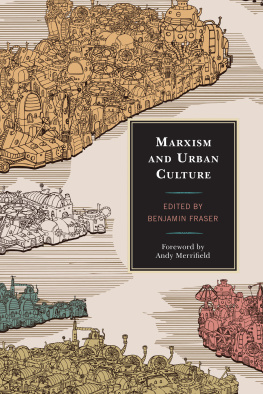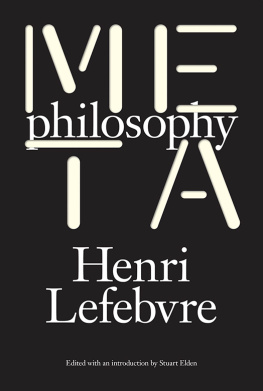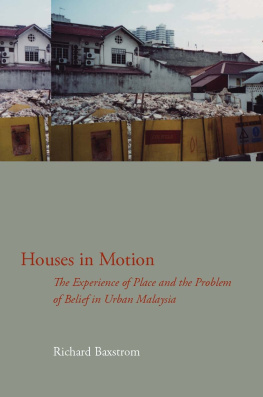Sue Middleton - Henri Lefebvre and Education: Space, history, theory
Here you can read online Sue Middleton - Henri Lefebvre and Education: Space, history, theory full text of the book (entire story) in english for free. Download pdf and epub, get meaning, cover and reviews about this ebook. year: 2013, publisher: Taylor and Francis, genre: Religion. Description of the work, (preface) as well as reviews are available. Best literature library LitArk.com created for fans of good reading and offers a wide selection of genres:
Romance novel
Science fiction
Adventure
Detective
Science
History
Home and family
Prose
Art
Politics
Computer
Non-fiction
Religion
Business
Children
Humor
Choose a favorite category and find really read worthwhile books. Enjoy immersion in the world of imagination, feel the emotions of the characters or learn something new for yourself, make an fascinating discovery.
- Book:Henri Lefebvre and Education: Space, history, theory
- Author:
- Publisher:Taylor and Francis
- Genre:
- Year:2013
- Rating:4 / 5
- Favourites:Add to favourites
- Your mark:
- 80
- 1
- 2
- 3
- 4
- 5
Henri Lefebvre and Education: Space, history, theory: summary, description and annotation
We offer to read an annotation, description, summary or preface (depends on what the author of the book "Henri Lefebvre and Education: Space, history, theory" wrote himself). If you haven't found the necessary information about the book — write in the comments, we will try to find it.
Henri Lefebvre and Education: Space, history, theory — read online for free the complete book (whole text) full work
Below is the text of the book, divided by pages. System saving the place of the last page read, allows you to conveniently read the book "Henri Lefebvre and Education: Space, history, theory" online for free, without having to search again every time where you left off. Put a bookmark, and you can go to the page where you finished reading at any time.
Font size:
Interval:
Bookmark:

During his lifetime Henri Lefebvre (19011991) was renowned in France as a philosopher, sociologist and activist. Although he published more than 70 books, few were available in English until The Production of Space was translated in 1991. While this work often associated with geography has influenced educational theory's spatial turn, educationalists have yet to consider Lefebvre's work more broadly.
This book engages in an educational reading of the selection of Lefebvre's work that is available in English translation. After introducing Lefebvre's life and works, the book experiments with his concepts and methods in a series of five spatial histories of educational theories. In addition to The Production of Space, these studies develop themes from Lefebvre's other translated works: Rhythmanalysis, The Explosion, the three volumes of Critique of Everyday Life and a range of his writings on cities, Marxism, technology and the bureaucratic state. In the course of these inquiries, Lefebvre's own passionate interest in education is uncovered: his critiques of bureaucratised schooling and universities, the analytic concepts he devised to study educational phenomena, and his educational methods.
Throughout the book Middleton demonstrates how Lefebvre's conceptual and methodological tools can enhance the understanding of the spatiotemporal location of educational philosophy and theory. Bridging disciplinary divides, it will be key reading for researchers and academics studying the philosophy, sociology and history of education, as well as those working in fields beyond education including geography, history, cultural studies and sociology.
Sue Middleton is Emeritus Professor of Education in the Faculty of Education at the University of Waikato, Hamilton, New Zealand.
Series editors Michael A. Peters
University of Waikato, New Zealand; University of Illinois, USA
Gert Biesta
University of Luxembourg, Luxembourg
This book series is devoted to the exploration of new directions in the philosophy of education. After the linguistic turn, the cultural turn, and the historical turn, where might we go? Does the future promise a digital turn with a greater return to connectionism, biology, and biopolitics based on new understandings of system theory and knowledge ecologies? Does it foreshadow a genuinely alternative radical global turn based on a new openness and interconnectedness? Does it leave humanism behind or will it reengage with the question of the human in new and unprecedented ways? How should philosophy of education reflect new forces of globalization? How can it become less Anglo-centric and develop a greater sensitivity to other traditions, languages, and forms of thinking and writing, including those that are not rooted in the canon of Western philosophy but in other traditions that share the love of wisdom that characterizes the wide diversity within Western philosophy itself. Can this be done through a turn to intercultural philosophy? To indigenous forms of philosophy and philosophizing? Does it need a post-Wittgensteinian philosophy of education? A postpostmodern philosophy? Or should it perhaps leave the whole construction of post-positions behind?
In addition to the question of the intellectual resources for the future of philosophy of education, what are the issues and concerns that philosophers of education should engage with? How should they position themselves? What is their specific contribution? What kind of intellectual and strategic alliances should they pursue? Should philosophy of education become more global, and if so, what would the shape of that be? Should it become more cosmopolitan or perhaps more decentred? Perhaps most importantly in the digital age, the time of the global knowledge economy that reprofiles education as privatized human capital and simultaneously in terms of an historic openness, is there a philosophy of education that grows out of education itself, out of the concerns for new forms of teaching, studying, learning and speaking that can provide comment on ethical and epistemological configurations of economics and politics of knowledge? Can and should this imply a reconnection with questions of democracy and justice?
This series comprises texts that explore, identify and articulate new directions in the philosophy of education. It aims to build bridges, both geographically and temporally: bridges across different traditions and practices and bridges towards a different future for philosophy of education.
In this series
On Study
Giorgio Agamben and Educational Potentiality
Tyson E. Lewis
Education, Experience and Existence
Engaging Dewey, Peirce and Heidegger
John Quay
African Philosophy of Education Reconsidered
On being human
Yusef Waghid
Buber and Education
Dialogue as conflict resolution
W. John Morgan and Alexandre Guilherme
Henri Lefebvre and Education
Space, history, theory
Sue Middleton
and Education
Space, history, theory
Sue Middleton

First published 2014
by Routledge
2 Park Square, Milton Park, Abingdon, Oxon OX14 4RN
and by Routledge
711 Third Avenue, New York, NY 10017
Routledge is an imprint oftheTaylor & Francis Group, an informa business
2014 S. Middleton
The right of S. Middleton to be identified as author of this work has been asserted by her in accordance with sections 77 and 78 of the Copyright, Designs and Patents Act 1988.
All rights reserved. No part of this book may be reprinted or reproduced or utilised in any form or by any electronic, mechanical, or other means, now known or hereafter invented, including photocopying and recording, or in any information storage or retrieval system, without permission in writing from the publishers.
Trademark notice: Product or corporate names may be trademarks or registered trademarks, and are used only for identification and explanation without intent to infringe.
British Library Cataloguing in Publication Data
A catalogue record for this book is available from the British Library
Library of Congress Cataloging in Publication Data
A catalog record for this book has been requested
ISBN: 978-0-415-81080-7 (hbk)
ISBN: 978-0-203-07066-6 (ebk)
Typeset in Bembo
by RefineCatch Limited, Bungay, Suffolk
Sue Middleton, Emeritus professor at the University ofWaikato and previously a professor in the department of Policy, Cultural and Social Studies in Education at Waikato for many years, is a social theorist with an interest in many fields, including: New Zealand's involvement in the global 1920s1950s Progressive Education movement, the neo-progressive educational ideas of the late 1960s1970s, and connections between these two historical movements; the lives and works of New Zealand educational theorists, particularly Sylvia Ashton-Warner; doctoral education; the impact of the New Zealand research assessment (PBRF) on educational knowledge in higher education; and the letters and other narratives of emigrants of the working class to Wellington in the early 1840s. There is a clear historical bias in her work and she also draws heavily on the new geography, especially that which theorises the production of space. While her work is not traditionally regarded as philosophical, Gert and I decided to commission a work from her that investigates the significance and relevance of Henri Lefebvre, the Marxist philosopher and sociologist, for a number of reasons. First, philosophers must reach out to the best scholars working in social science and historical studies; second, questions of space have become critically important in studies of educational globalization; and third, at the level of theory, it could be argued, disciplinary perspectives become less important and many of the studies necessary for understanding education and its new policy formations have to employ a multidisciplinary approach.
Font size:
Interval:
Bookmark:
Similar books «Henri Lefebvre and Education: Space, history, theory»
Look at similar books to Henri Lefebvre and Education: Space, history, theory. We have selected literature similar in name and meaning in the hope of providing readers with more options to find new, interesting, not yet read works.
Discussion, reviews of the book Henri Lefebvre and Education: Space, history, theory and just readers' own opinions. Leave your comments, write what you think about the work, its meaning or the main characters. Specify what exactly you liked and what you didn't like, and why you think so.

